Grief is a universal experience, yet its effects on our relationships can be deeply personal and sometimes surprising. Whether it’s the loss of a loved one, a job, or a dream, grief can ripple through every aspect of our lives, including our relationships with family, friends, and even ourselves. In this blog post, we’ll dive into the complexities of how grief affects relationships and explore ways to navigate these emotional waters.
Understanding the Grieving Process
Grief is a natural response to loss, encompassing a range of emotions and experiences that vary from person to person. While there is no one-size-fits-all approach to grieving, there are common stages and patterns that many individuals may experience. In this article, we’ll explore the grieving process and offer insights into how to navigate this challenging journey.
- Shock and Denial: When faced with a significant loss, it’s common to initially experience shock and disbelief. This stage may involve feelings of numbness, confusion, and a sense of unreality. Denial can serve as a protective mechanism, allowing individuals to gradually process the reality of the loss at their own pace.
- Anger and Guilt: As the shock wears off, intense emotions such as anger and guilt may surface. Anger can be directed towards oneself, others, or even the situation that led to the loss. Feelings of guilt may arise from perceived shortcomings or unresolved conflicts with the deceased or the circumstances surrounding the loss.
- Bargaining: During this stage, individuals may engage in bargaining behaviors, seeking ways to regain what was lost or make sense of the situation. This can involve making promises, seeking answers, or trying to negotiate with a higher power or fate. Bargaining is often accompanied by feelings of hope and a desire for control over the outcome.
- Depression: Grief can manifest as profound sadness, despair, and a sense of emptiness. This stage is characterized by a deep mourning for the loss and may involve withdrawal from activities, changes in sleep and appetite, and a loss of interest in previously enjoyed pursuits. It’s important to differentiate between normal grief-related sadness and clinical depression, seeking professional help if symptoms persist or worsen.
- Acceptance and Healing: Over time, individuals may reach a stage of acceptance where they come to terms with the reality of the loss and begin to find meaning and purpose in their lives again. Healing doesn’t mean forgetting or moving on from the loss but rather integrating it into one’s personal narrative and finding ways to honor and remember what was lost.
Why Does Grief Mess with Our Connections?
Imagine grief as a giant, emotional sinkhole. You’re standing right next to it, processing a million feelings at once – sadness, anger, confusion. It’s hard to focus on anything else, let alone nurture your relationships. Here’s the thing: the people who care about you are also teetering on the edge of that sinkhole.
- Emotional Rollercoaster: Grief is a messy business. You might be a blubbering mess one minute, then cracking jokes the next. This emotional whiplash can be confusing for your partner, friends, or family. They might not know how to react, leaving everyone feeling a bit lost.
- Communication Breakdown: When you’re drowning in grief, clear communication goes out the window. You might withdraw or lash out, pushing loved ones away unintentionally. Conversely, they might become overly cautious, tiptoeing around your emotions, which can feel suffocating.
- Shifting Needs: Grief can change your needs in a relationship. You might crave extra support, space, or both, depending on the day. This shift can be hard for others to adjust to, especially if they’re used to a certain dynamic.
- Remember, Everyone Grieves Differently: Just like snowflakes, no two grief journeys are alike. Your best friend might be a chatterbox about their loss, while your partner prefers quiet reflection. This difference in styles can lead to misunderstandings and frustration.
The Positive Impact of Grief on Relationships
Okay, so grief can be a real jerk. But here’s the surprising part: it can also strengthen your relationships. Here’s how:
- Shared Vulnerability: Grief strips away facades and forces us to be vulnerable. By opening up to loved ones, you create a deeper connection built on shared pain and understanding.
- Appreciation for What You Have: Loss often makes us appreciate what we have left behind. This newfound appreciation can translate into stronger, more meaningful relationships with the people who are still around.
- A Shared Experience: Grief can create a powerful bond between those who have experienced a similar loss. Sharing stories and memories of the person you lost can be incredibly healing and bring you closer to those who understand.
How to Navigate Grief Together
So, how do you keep your relationships afloat during this emotional storm? Here are some tips:
- Open Communication is Key: Talk about your feelings, even if it’s hard. Let your loved ones know what kind of support you need, whether it’s a listening ear, a shoulder to cry on, or some good old-fashioned distraction.
- Be Patient: Grief takes time. Don’t expect yourself or your loved ones to bounce back overnight. Be patient with yourself and each other. There will be good days and bad days, and that’s okay.
- Respect Individual Grieving Styles: Remember, everyone grieves differently. Don’t judge someone else’s process. If your best friend wants to talk incessantly about the loss, let them know. If your partner needs quiet space, respect that too.
- Practice Self-Care: You can’t pour from an empty cup. Make sure you’re taking care of yourself emotionally and physically. Eat healthy, get enough sleep, and find healthy outlets for your grief, whether it’s journaling, exercising, or spending time in nature.
- Seek Professional Help: Grief is a complex emotion. If you’re struggling to cope, don’t hesitate to seek professional help. A therapist can provide a safe space to process your emotions and develop healthy coping mechanisms.
- Remember, You’re Not Alone: Loss is a universal experience. There are countless resources available to help you navigate grief, from online communities to support groups. Don’t be afraid to reach out for help.
Do you want to read more about “Grief Therapy: Navigating Through Loss” Just visit our blog page today!
Final Thoughts
Grief is an inevitable part of life, but it doesn’t have to destroy your relationships. By communicating openly, practicing patience, and taking care of yourselves, you can weather this storm together. And sometimes, in the midst of loss, you discover a deeper strength and connection with the people who matter most.Feeling lost after a loss? Grief can strain even the strongest bonds. At Elysian Psychological Services, we help you navigate this emotional rollercoaster and rebuild connections with loved ones through our Grief Therapy treatment. Don’t face grief alone – our experienced therapists can guide you towards understanding, healing, and a stronger support system. Let’s mend what’s broken and find solace together. Contact Elysian Psychological Services today.


